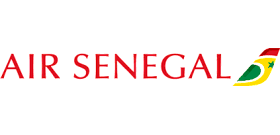 Air Sénégal Faces $65M Legal Battle: Wake-Up Call for African Aviation
Air Sénégal Faces $65M Legal Battle: Wake-Up Call for African Aviation
The African aviation landscape faces fresh turbulence as Air Sénégal confronts a massive \$65.2 million lawsuit filed by three Irish leasing companies affiliated with global investment giant Carlyle Aviation Partners. This legal battle, unfolding in New York's federal court, exposes critical vulnerabilities within Africa's airline sector and raises urgent questions about financial sustainability across the continent's carriers.
The dispute centers on four aging Airbus aircraft that have become the focal point of an international legal drama. SASOF III (A2) Aviation Ireland DAC, Aergen Aircraft Twenty Limited, and Aergen Aircraft Twenty One Limited launched their legal offensive on July 25, targeting Senegal's national carrier for alleged unpaid lease payments, inadequate maintenance practices, and delayed aircraft returns. The aircraft in question—two Airbus A319-100s and two Airbus A321-200s—represent a significant portion of Air Sénégal's operational capacity.
What makes this case particularly striking is the substantial age and depreciation of the disputed aircraft. Analysis reveals these planes, manufactured between 2004 and 2007, have experienced dramatic value erosion. The two A321-200 aircraft, now over 20 years old, have depreciated by more than 55% from their original list prices, while the A319-100s show similar patterns of value decline. Combined, the four-aircraft portfolio has lost approximately \$228 million in value since manufacture, highlighting the challenging economics of operating aging fleets.
The lawsuit amount itself tells a compelling story about the broader financial pressures facing African carriers. At 34.8% of the aircraft portfolio's current market value, the \$65.2 million claim suggests damages extending far beyond simple asset recovery. Industry experts point to unpaid rent, maintenance penalties, and operational disruptions as likely components of this substantial figure.
Air Sénégal's financial struggles reflect broader challenges plaguing African aviation. The carrier has accumulated debts exceeding \$190 million despite receiving nearly \$300 million in government support since its 2018 launch. Annual losses of \$144 million in 2022 and \$92 million in 2023 underscore the persistent operational difficulties facing many African airlines attempting to establish sustainable business models.
The Carlyle Aviation Partners connection adds another layer of complexity to this dispute. As a leading institutional investment manager with \$186 billion in assets, Carlyle operates through sophisticated Irish special purpose vehicles designed to optimize aircraft financing and leasing operations. Their involvement demonstrates how global capital markets increasingly influence African aviation through complex leasing arrangements that can create significant financial exposure for regional carriers.
Historical precedents in US federal courts suggest challenging prospects for Air Sénégal. Similar aviation leasing disputes have consistently favored lessors, particularly in cases involving unpaid rent and maintenance obligations. Recent cases, including substantial judgments against other international carriers, indicate that US courts strictly enforce lease agreement terms and frequently award significant damages for contract breaches.
The operational impact extends beyond financial metrics. Air Sénégal suspended multiple international routes in September 2024, including services to New York, Milan, and several European destinations, as part of network optimization efforts. This route rationalization reflects the difficult balance African carriers must strike between ambitious growth plans and financial sustainability.
For African aviation stakeholders, this case illuminates critical lessons about fleet management and financial planning. The dispute highlights risks associated with operating aging aircraft, which face accelerated depreciation and higher maintenance costs while approaching the end of their economic service lives. The four disputed aircraft, with an average age of nearly 20 years, exemplify these challenges.
The broader implications for African aviation financing deserve careful consideration. As traditional government support models prove insufficient, carriers increasingly rely on international leasing arrangements that can create complex legal and financial obligations. The Air Sénégal case demonstrates how cross-border disputes can escalate quickly when carriers struggle to meet lease obligations, potentially affecting access to future financing.
Industry observers note that similar financial pressures affect numerous African carriers, many of which operate with limited capital reserves and face challenging market conditions. The COVID-19 pandemic's lingering effects, combined with rising fuel costs and currency volatility, have created a perfect storm for airlines across the continent.
The legal proceedings also highlight the importance of proper maintenance practices and timely lease compliance. Allegations of inadequate aircraft maintenance not only create immediate financial liabilities but can also damage carrier reputations and complicate future leasing relationships. For African airlines seeking to expand their fleets, maintaining strong relationships with international lessors becomes increasingly critical.
Looking ahead, the Air Sénégal case may influence how international lessors approach African market opportunities. Enhanced due diligence and stricter lease terms could become standard practice, potentially increasing financing costs for regional carriers. This development might accelerate consolidation within African aviation as smaller carriers struggle to access affordable aircraft financing.
The dispute's resolution will likely set important precedents for future aviation financing in Africa. A favorable outcome for Carlyle could encourage more aggressive enforcement actions by international lessors, while a settlement might provide breathing room for struggling carriers. Either way, the case underscores the urgent need for African airlines to develop more robust financial management practices and sustainable business models.
As this legal drama unfolds in New York courts, African aviation professionals must grapple with fundamental questions about industry sustainability and growth strategies. The Air Sénégal experience serves as a stark reminder that ambitious expansion plans must be balanced with prudent financial management and realistic operational capabilities. For an industry critical to Africa's economic development and connectivity, these lessons carry implications far beyond a single carrier's struggles.
